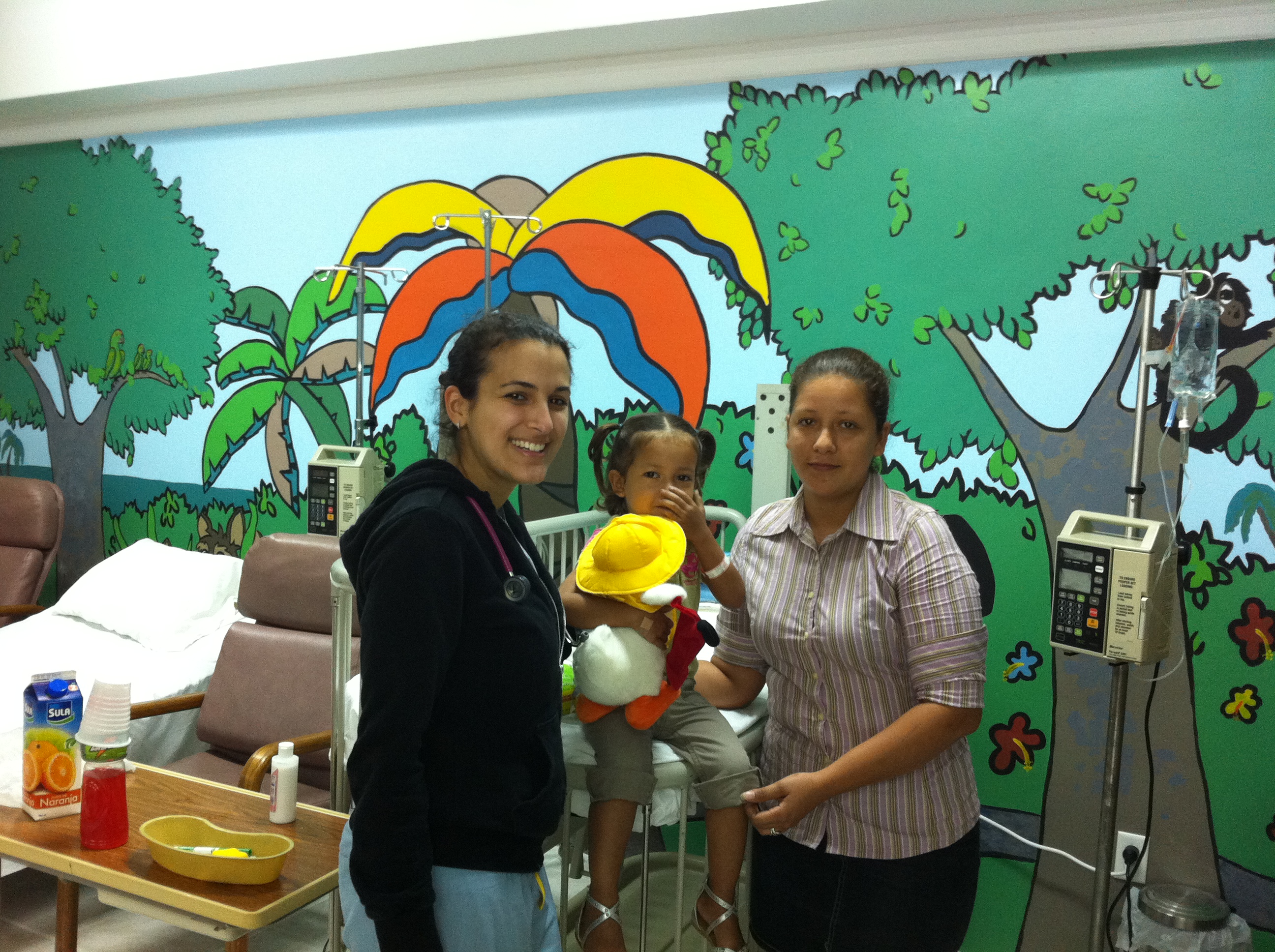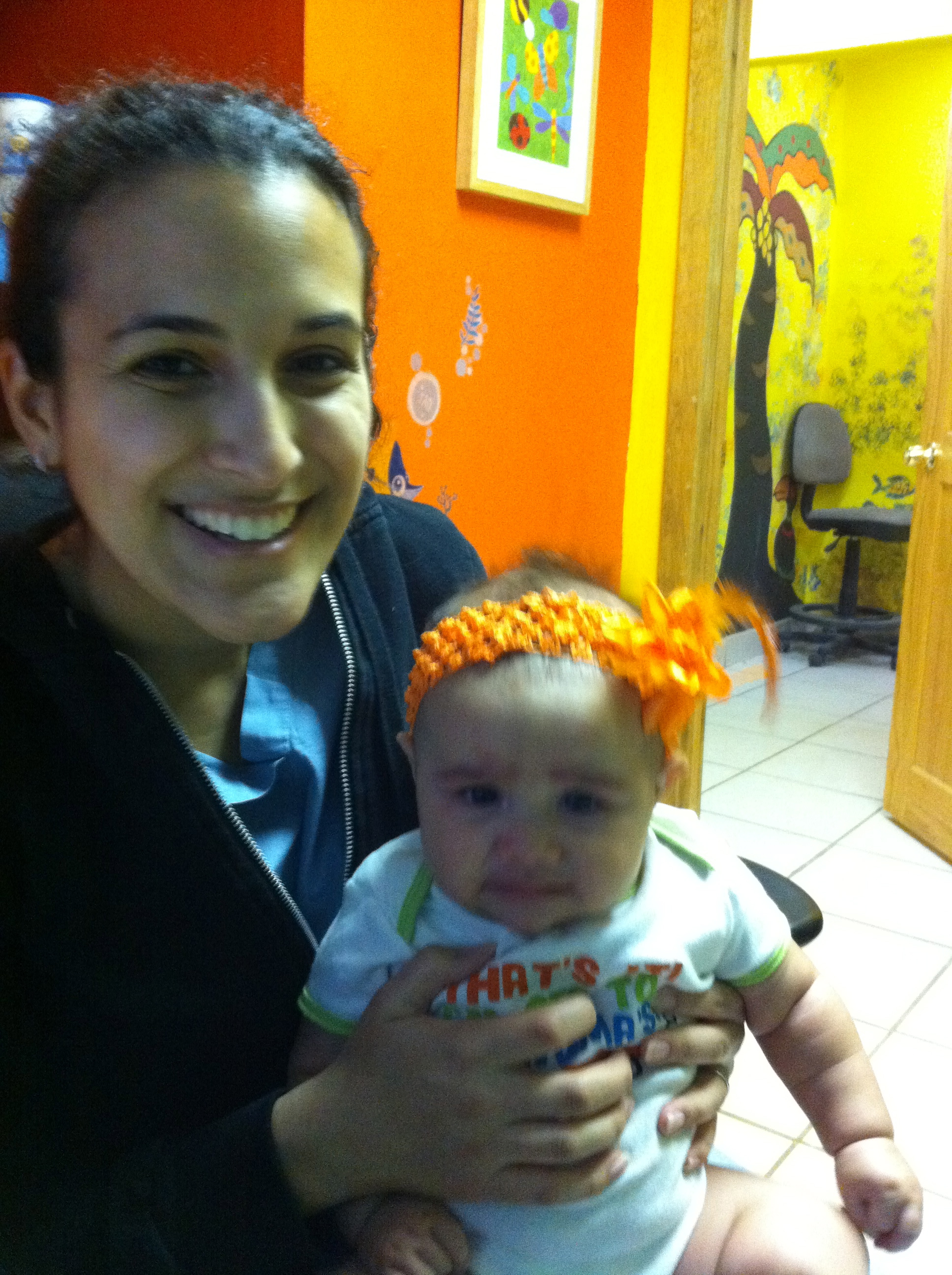3/12/12 Posted by Hadia Siddiqui, MD (a third year pediatric resident from Kaiser Permanente, Oakland) while serving a global health…
Week 1 in Honduras
2/12/12
Posted by Neelu Ghaderi, MD (a third year pediatric resident from Kaiser Permanente, Oakland) currently serving a global health elective in Roatan, Honduras at Clinica Esperanza.
Hadia and I have just finished our first week on the beautiful island of Roatan, Honduras. We are working at Clinica Esperanza, or “Ms. Peggy’s clinic” as it is often better known on the island, referring to the nurse whose vision it was to create a clinic for the underserved residents of Roatan and has worked very hard to make it a reality. While the outpatient clinic opened nearly 5 years ago, a new pediatric inpatient unit has recently opened and this week 2 patients were admitted for dehydration; prior to that, the closest inpatient unit was within a hospital that does not even have running water. There is also a newly opened birthing unit, where there was a successful delivery this week.
Managing a clinic with limited resources has been challenging yet educational, as I have to often seek alternatives to my usual care. Sometimes I cannot offer an immediate solution as it requires a service not offered at our clinic(or possibly the entire island!) or one that exceeds the patient’s ability to pay for it. Clinica Esperanza has definitely exceeded my expectations; I have found a much larger range and quantity of medications available than I had expected to and we have a visiting lab tech who performs simple lab tests as well. We also have the luxury of having a basic electronic charting system, though they are still working out some kinks. As the pictures had suggested on their website, the clinic is clean and has nicely painted walls (with otoscopes/ophthalmoscopes mounted on them in both of the pediatric rooms!).
There are many Honduran patients(of whom the great majority do not speak English) and some English-speaking islanders as well. Many of the Honduran patients come from a nearby village of about 4,000 people referred to as “La Colonia,” where immigrants from the mainland live with limited water and electricity. The clinic has a Honduran pediatrician, Dr. Solis, who is very friendly and available to answer questions about the local practice of medicine. He doesn’t speak much English so, while I am rather fluent in Spanish, interacting with him and my patients has helped me better learn how to think and communicate in medical Spanish. I have also been learning tropical medicine and becoming quite familiar with patients wanting to “desparasitar,” a frequent chief complaint that wins them a dose of albendazole and often a one-month supply of multi-vitamins. On Friday alone I had 2 patients with GI parasites(either seen by the parent or confirmed on labs)!
Living about 10 minutes away from our clinic has really taught me how much we take simple things like roads for granted, as we often end up taking taxis for only part of our route given how rough the roads are. There is one major paved road to clinic and the rest is dirt roads, which have been a bit challenging between the tropical rainy weather we intermittently experience and ongoing construction. I feel grateful to have running water and electricity at both my home and in clinic.
It has been an exciting trip so far and we have found the people here to be very friendly and welcoming; I am looking forward to seeing what the next week holds in store for us!


Comments (0)